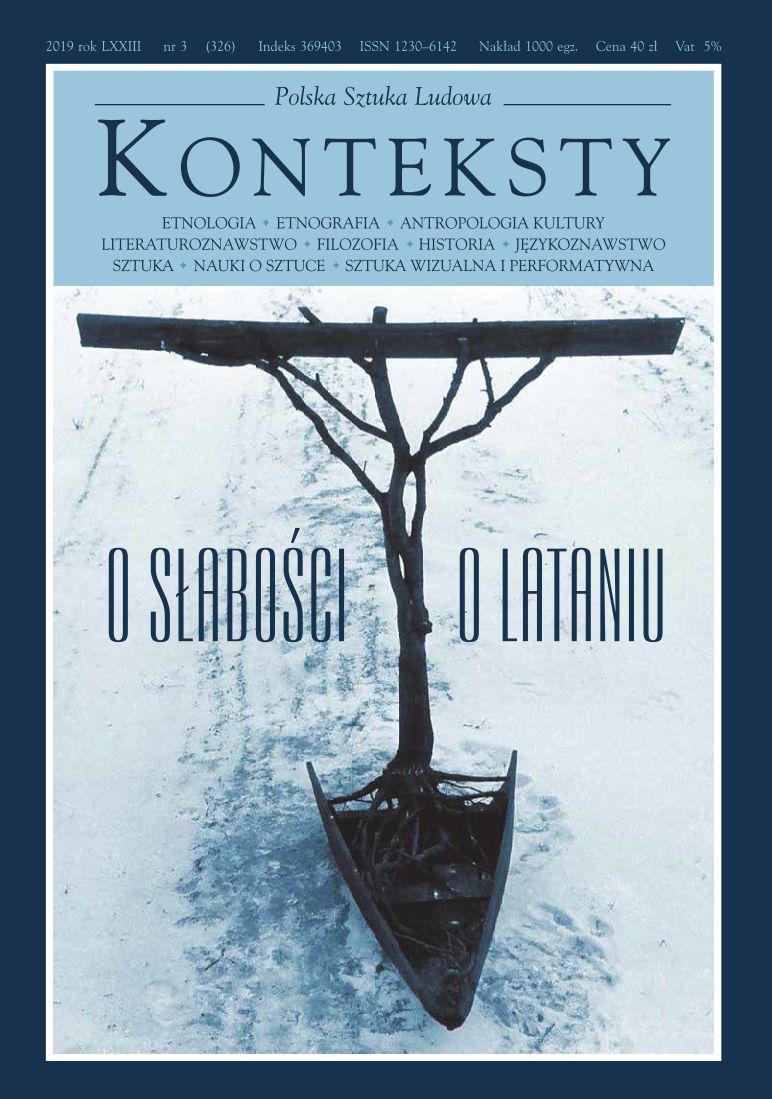Spokój, Bezruch, Cisza
Quietude, Stillness, Calmness
Author(s): Maciej KrupaSubject(s): Philosophy, Language and Literature Studies
Published by: Instytut Sztuki Polskiej Akademii Nauk
Keywords: weakness;trip;homo viator;anthropology;
Summary/Abstract: Walking is a weaker form of activity than driving or riding, regardless whether on horseback, a car, or in a tram or a train. If this is true then what is weaker than walking? Apparently, the answer is: only motionlessness. Its synonyms are immobility and a certain static quality, but also rest and numbness. Perhaps then the terms we seek are: non-walking, stopping. But non-walking and motionlessness posses a certain negative quality, while we are concerned with something positive. In English a single word: stillness would suffice. In Polish we are compelled to use at least three words: calmness, motionlessness, and silence in order to render the meaning of stillness. The adverb still means, i.a. “motionlessly”. The adjective still denotes “immobile”, ”quiescent”, “silent”, and “dead”. Here the home belongs to the sphere of immobility and stillness; the legal definition of a home, a building, and a lot is “real estate/immobility”. Mobility denotes homelessness associated with changing places, the absence of enrootment, motion. Homo viator is a traveller, a pilgrim, a wanderer, a man on his way. Walking is a weak form of travelling due to its far-reaching limitations – speed, exhaustion, and the need to rest.
Journal: Konteksty
- Issue Year: 326/2019
- Issue No: 3
- Page Range: 193-196
- Page Count: 4
- Language: Polish
- Content File-PDF

